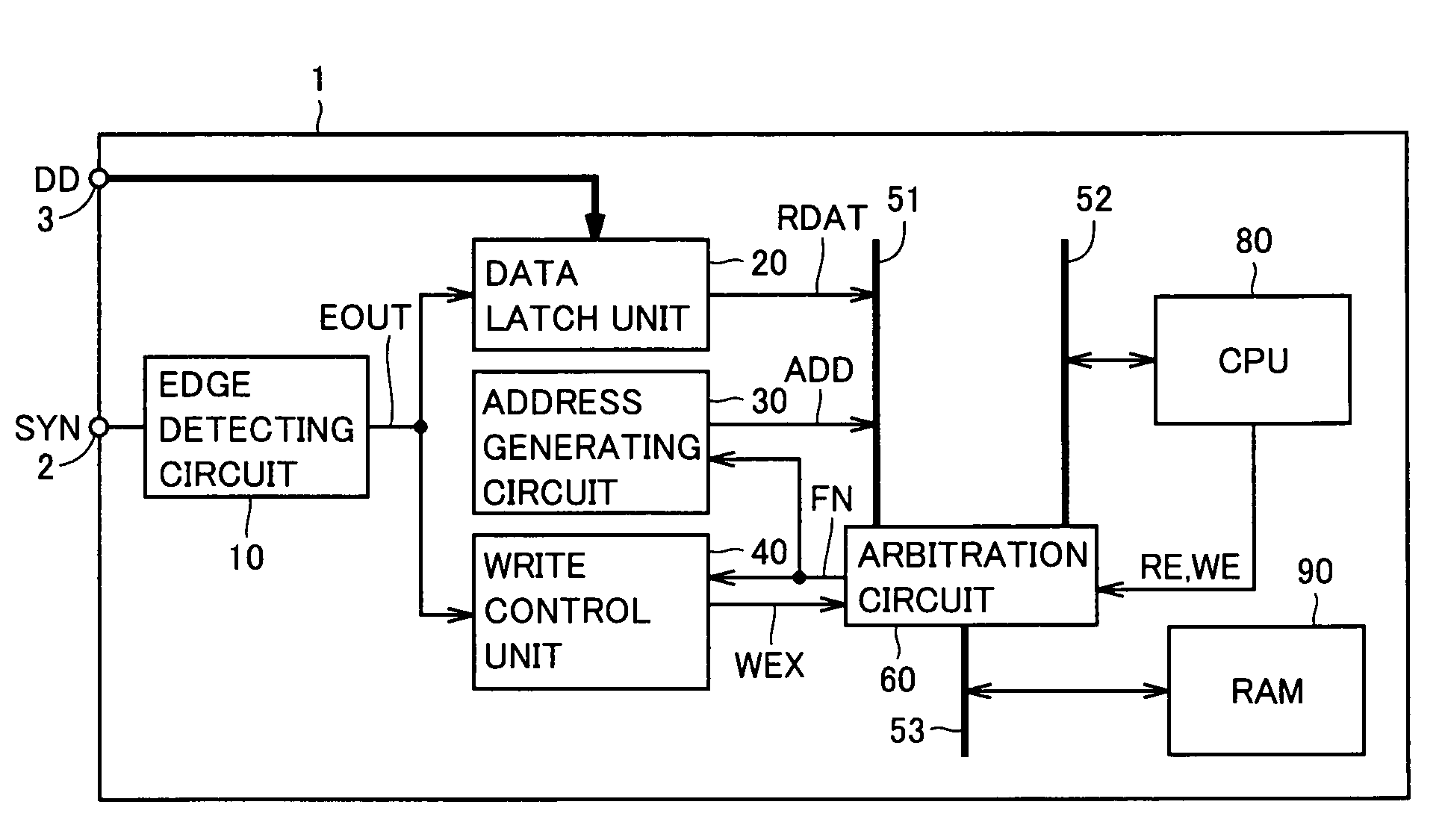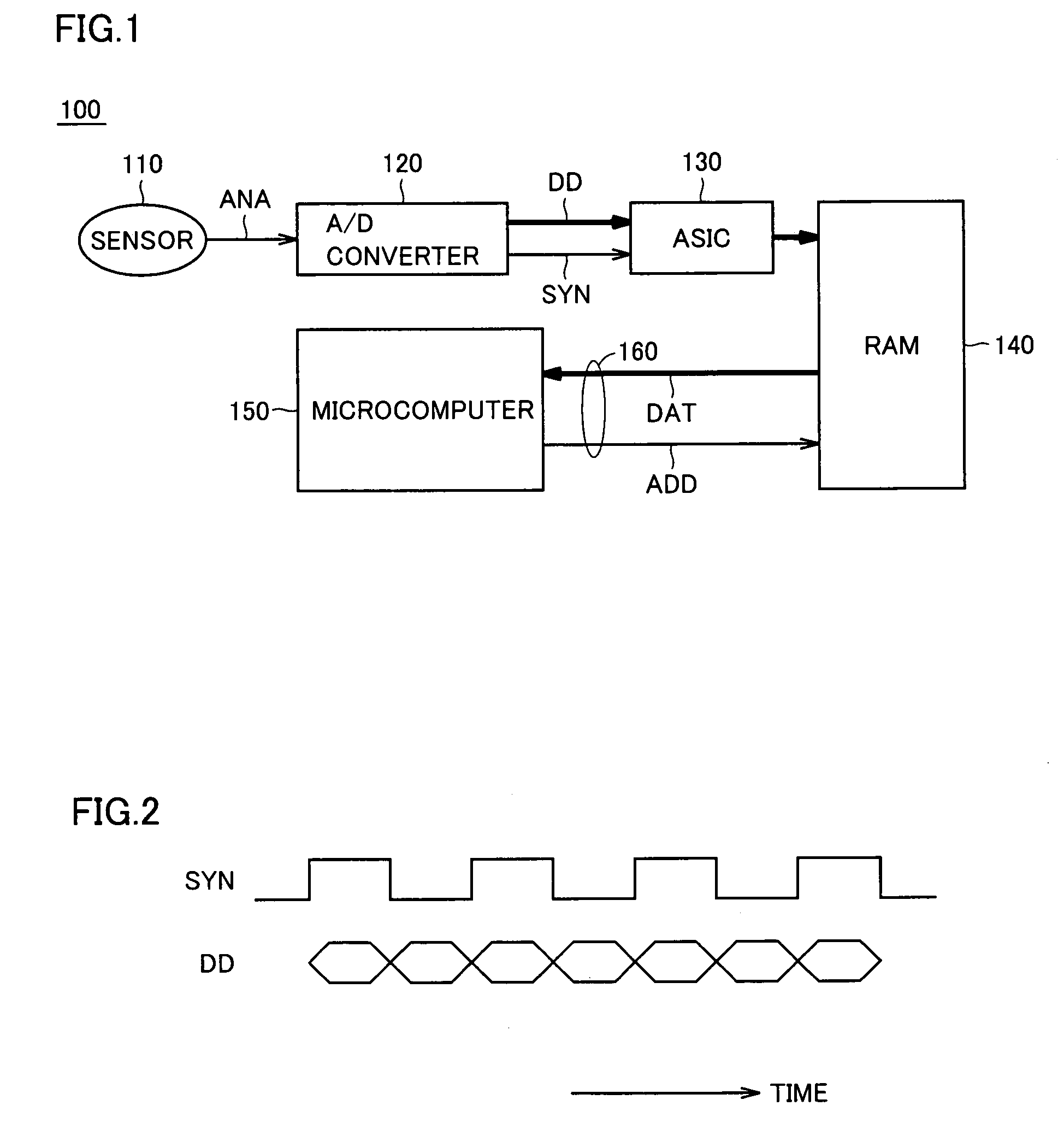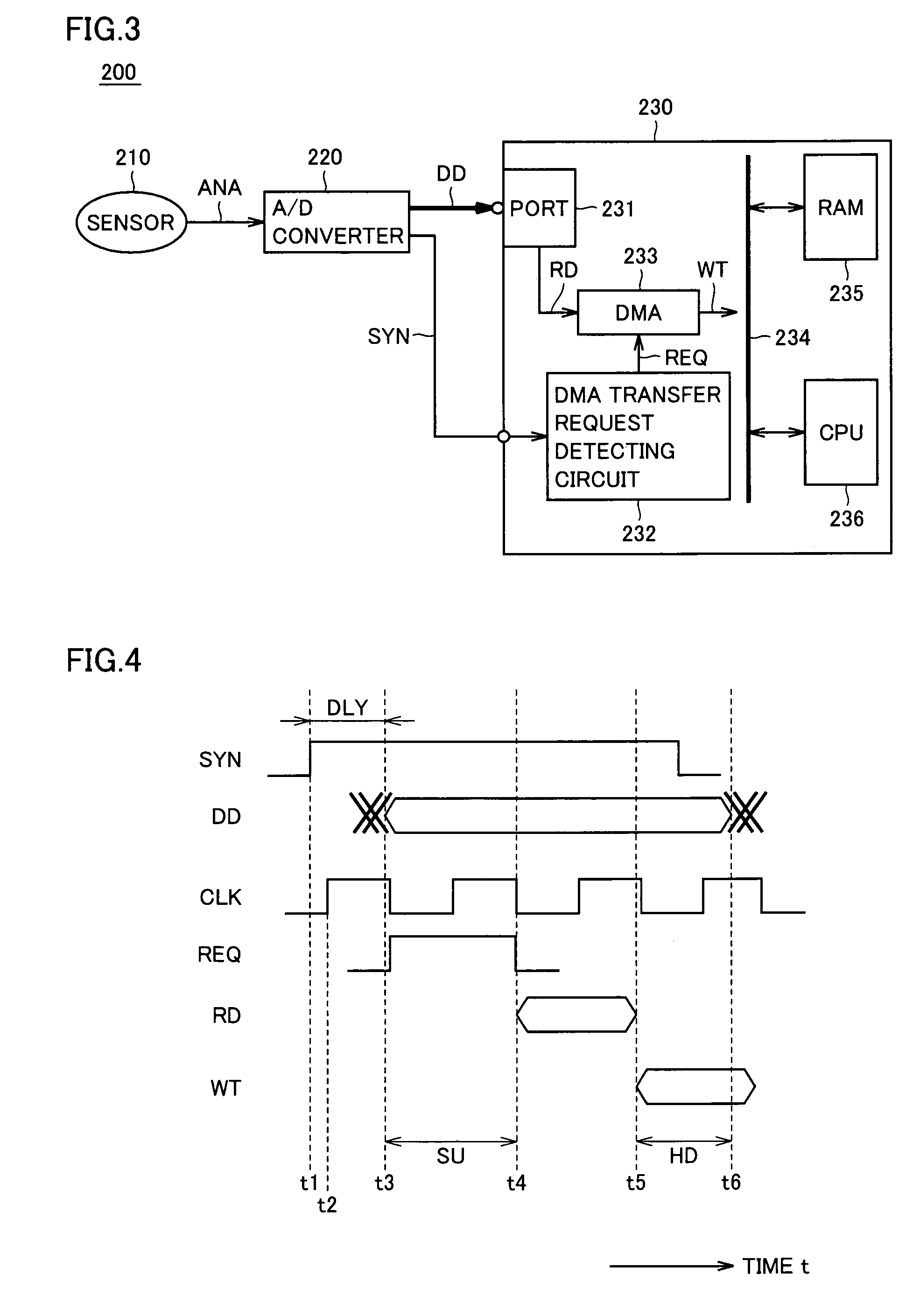Microcomputer minimizing influence of bus contention
a microcomputer and bus contention technology, applied in the field of microcomputers, can solve the problems of dma start cycle disturbance, limited access, bottleneck in fast operation, etc., and achieve the effect of reducing the influence of bus contention and flexibly changing setup-time/hold-tim
- Summary
- Abstract
- Description
- Claims
- Application Information
AI Technical Summary
Benefits of technology
Problems solved by technology
Method used
Image
Examples
Embodiment Construction
[0040]Embodiments of the invention will now be described with reference to the drawings. In the figures, the same or corresponding portions bear the same reference numbers, and description thereof is not repeated.
[0041]FIG. 1 is a block diagram showing a block structure of a microcomputer system 100 forming a background of an embodiment of the invention.
[0042]Referring to FIG. 1, microcomputer system 100 includes a sensor 110, an A / D converter 120, an ASIC (Application Specific Integrated Circuit) 130, a RAM 140, a microcomputer 150 and an external bus 160.
[0043]Sensor 110 detects a certain event, and provides an analog signal ANA corresponding to it. A / D converter 120 converts analog signal ANA to digital data DD, and provides a synchronous signal SYN. In this embodiment, it is assumed that the A / D conversion (an output data width of digital data DD) has a precision of 8 bits, for the sake of convenience.
[0044]ASIC 130 receives digital data DD and synchronous signal SYN, and detect...
PUM
 Login to View More
Login to View More Abstract
Description
Claims
Application Information
 Login to View More
Login to View More - R&D
- Intellectual Property
- Life Sciences
- Materials
- Tech Scout
- Unparalleled Data Quality
- Higher Quality Content
- 60% Fewer Hallucinations
Browse by: Latest US Patents, China's latest patents, Technical Efficacy Thesaurus, Application Domain, Technology Topic, Popular Technical Reports.
© 2025 PatSnap. All rights reserved.Legal|Privacy policy|Modern Slavery Act Transparency Statement|Sitemap|About US| Contact US: help@patsnap.com



